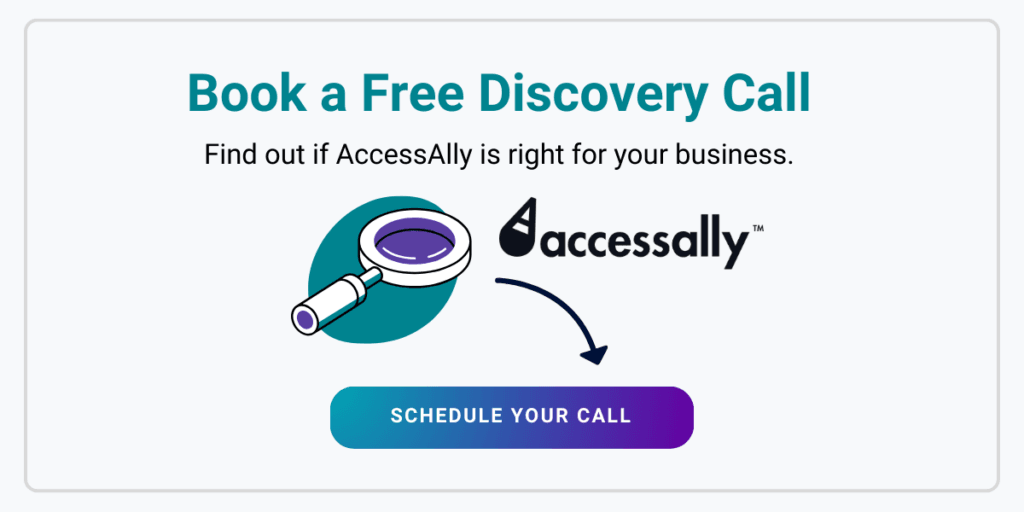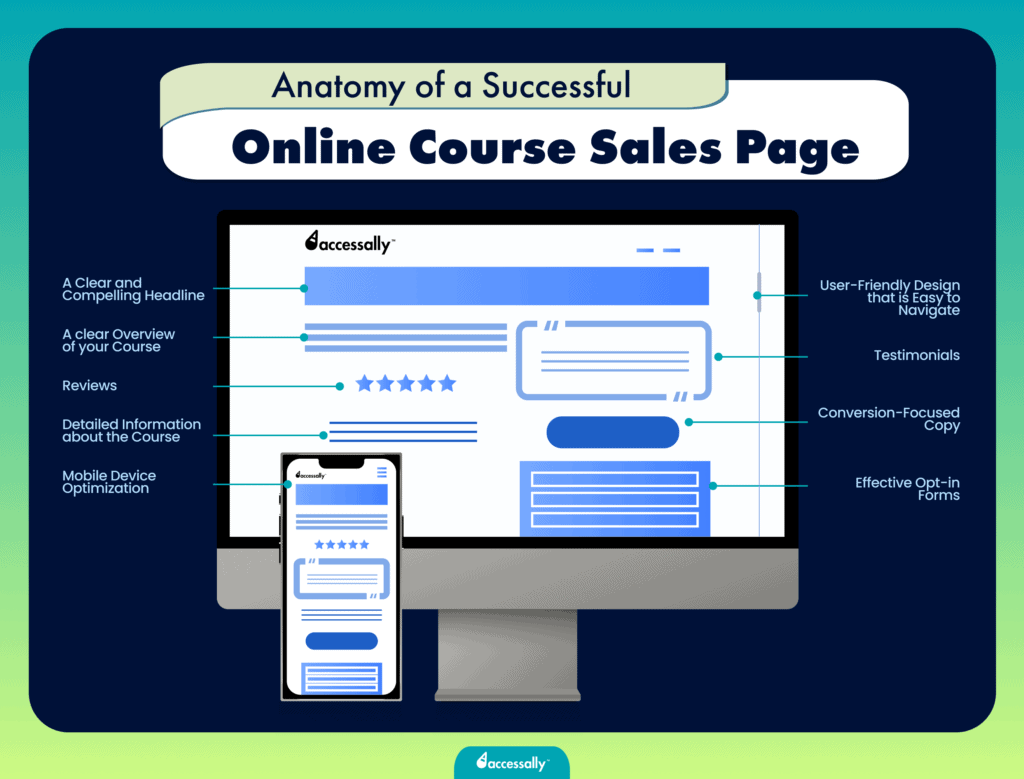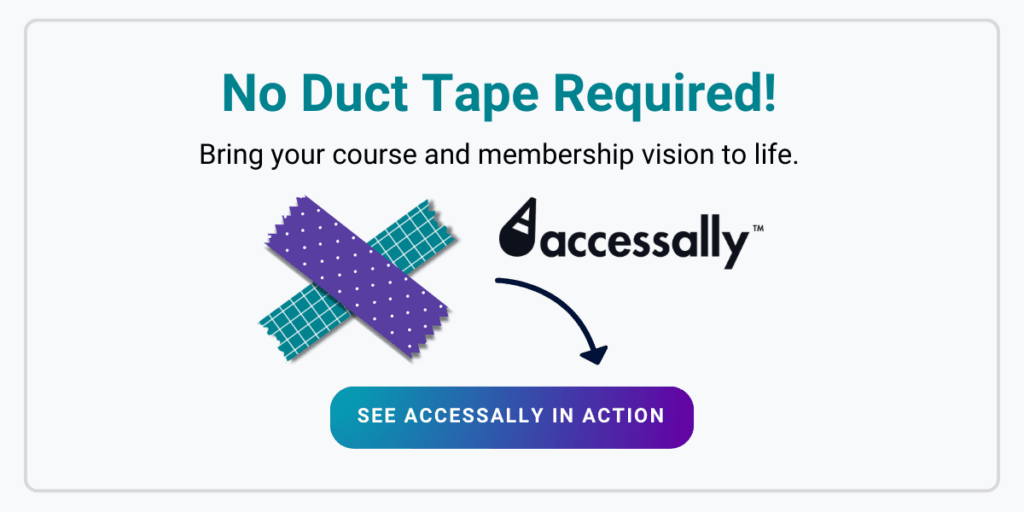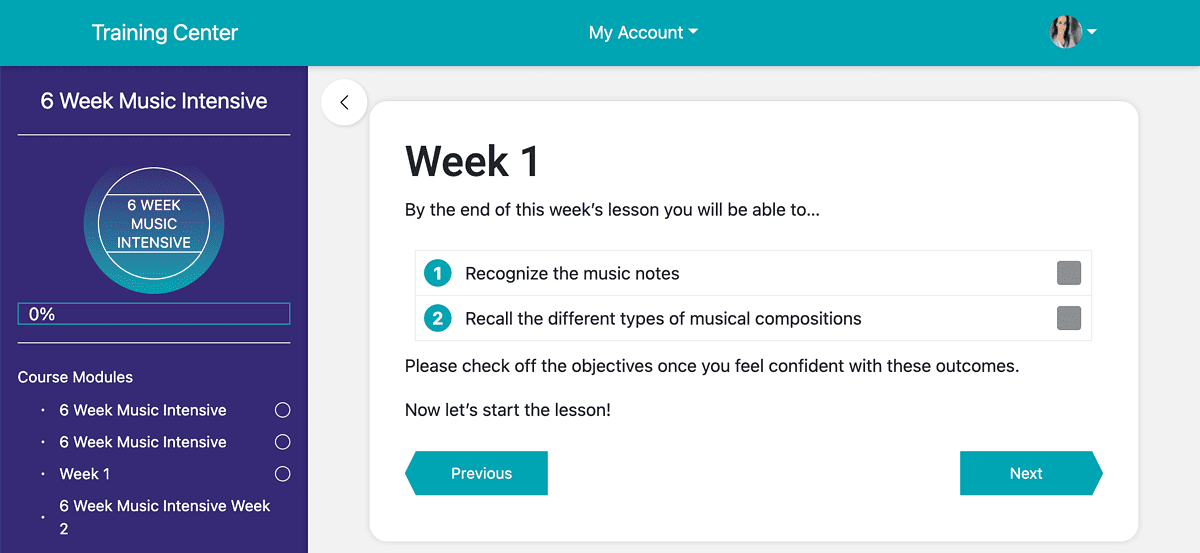If you’re an entrepreneur or business owner creating your first course, you’ve probably started thinking about how you’re going to get your course in front of the people who need it most. Maybe you’ve already spent countless hours creating an online course and are looking forward to enrolling your first students — and seeing your first profits!
But unless you’re creating a course on a marketplace, like Udemy or Coursera, you’re entirely responsible for marketing your new online course. Marketing should be top of mind both during the course creation process and beyond.
This article will help you create a marketing plan by outlining the essential steps to establishing a strong marketing foundation while you’re developing your course, and then share the most effective promotional strategies you can use both prior to and following your course launch.
Why Marketing Is Crucial for Online Courses
Selling courses online is a great way to scale your business beyond 1:1 consulting or services to include some passive income or expand an existing business.
But in order to make good money with online courses, you need to have a well executed marketing plan. Effective marketing will help you fully reap the benefits of all the time, money, and effort you’ve invested in creating your online course, because investing in resources like software and content production can be expensive. So to get a good return on investment and start generating income, you’ve got to have a solid marketing plan.
Pre-launch marketing can serve to validate course ideas, generate anticipation, and secure your first students. Marketing that continues after the course launches will maximize student enrollment.
With the online course market becoming increasingly competitive, implementing the right marketing strategies is also crucial for standing out in the competitive online course landscape.


When Should You Market Your Online Course?
The best time to start marketing your course is as soon as you have the idea; the second best time is today! You should begin marketing your course as early as possible — ideally as soon as you start creating it, but even if you’ve already started creating your course, you can start your marketing.
It’s never too early to start marketing your course, but after you launch is too late.
(OK, it’s never really too late, but you’ll be playing catch-up.)
Starting your marketing early in the process allows you to establish your brand presence and grow your audience while you create your course. It’s hard to estimate exactly how long it will take you to create your course, because of all the different factors involved.
Working on your marketing while you’re creating your course will ensure alignment between your course content and your marketing message, which is all part of your marketing strategy.
Your marketing strategy includes:
- Marketing objectives
- Target audience
- Messaging
- Promotional channels
- Timeline
You’ll want to tailor your marketing strategy to align with key milestones in your launch plan, such as teaser campaigns, early-bird discounts, and deadline reminders.
An evergreen course will require ongoing efforts across all your marketing channels. If you choose to do big course launches a few times per year, you’ll want to focus most of your marketing efforts in the weeks leading up to the launch.
How To Market Your Online Course: Laying The Foundation
In order to effectively market your online course, it’s crucial to lay the groundwork as you’re creating it. Work through the following steps and you’ll have a solid foundation for your marketing strategy.
Define Your Ideal Student
It’s important to understand the type of students you want to attract to your online course; for example, are you targeting private individuals or corporate clients? Not only will this understanding help you design the course content, but it will also inform your marketing efforts.
Pinpointing your target audience’s pain points and hesitations will allow you to craft effective messaging and ensure you are speaking exactly their language. Understanding the demographics of your audience like age, gender, occupation, etc., will also be key if you ever choose to do paid advertising.
Understand Your Unique Value Proposition
The thing that’s going to make people want to purchase your course and participate is your unique value proposition. Identifying the unique value proposition of your online course is another fundamental piece of groundwork you need to lay for effective marketing.
Pinpoint how your courses are different from all the others, as well as what makes you uniquely qualified as a course creator and instructor. You’ll want to work this information into your different marketing as well as your sales page.
Build a Compelling Sales Page
Regardless of where you are hosting your course, you’ll need a sales page or landing page. This page is specifically designed to convert website visitors into leads or customers. Your other marketing channels like blog posts, emails, or social media will work together to direct traffic to your landing page.
There are different types of platforms you can use to create and sell online courses. Some all-in-one platforms will have sales pages and templates built in. If you’re hosting a course on your own website, you’ll want to create a page on your site.
There are several important ways you can optimize your landing page including
- A strong headline
- A compelling course description
- A clear and well-placed call to action
- Strong visuals that incorporate your branding
- Student testimonials.
➡️ Check out this article for more tips and information on sales pages.




Market Online Courses Using These Top 5 Strategies
Once your course marketing foundation is solid, you’ll use different marketing channels for promotion both before and after launching the course.
1. Promote Your Course Through Social Media
Social media is a great tool for marketing your online course. If you already have a following, social media is a natural and effective way to build anticipation and tease your course before the launch. (If you don’t already have a following, check out the paid advertising options below.)
You can adapt your existing social profiles to promote your course in several ways:
- Update your bios to reflect your area of expertise.
- Link to your course landing page.
- Create engaging posts that will encourage interaction and resonate with potential students.
- Share testimonials as soon as you get them.
2. Send Emails to Subscribers
Email marketing can be used to keep current students engaged and up-to-date with course information. It can also be used to nurture leads and generate anticipation for your course launch.
Use emails to promote your course and build relationships with your subscribers over time. You can do this by offering them:
- Relevant and valuable content
- Updates and course information
- Exclusive course discounts
- Access to a free lesson to test out the course content.
3. Explore Paid Ad Options
Paid advertising can be a good option for course creators who don’t necessarily already have a large following. Paid ads provide an opportunity to amplify your online presence and send traffic to your course landing page.
Google Ads
You can use Google Ads to target specific keywords related to your course topics, allowing you to capture users actively searching for relevant information or solutions.
With Google Ads, you bid on relevant keywords, positioning your course at the top of search results.
Social media advertising
You can leverage social media advertising on platforms like Facebook, Instagram, YouTube, or TikTok.
Paid social media advertising allows you to target users based on demographics (knowing your target student will come in handy). You can run ad campaigns to build your followers or send them directly to your course sales page.
4. Leverage SEO
You can use search engine optimized blog content to generate more traffic to your website. Choosing topics and optimizing for keywords that are relevant to your target audience will bring in valuable traffic.
If you already have a website, you can leverage your existing traffic by promoting your course in your content through the addition of links and calls to action (CTA) to your course sales page.
Incorporate compelling CTAs that highlight the benefits of your course and encourage visitors to take action, such as enrolling or learning more.
5. Use Lead Magnets
A lead magnet is an incentive offered to website visitors in exchange for their contact information. It’s an excellent way to build your email list.
You can offer a lead magnet related to your course content as a sort of preview of the material. If you can figure out how to solve a “level one” problem for your audience for free, they’ll be more likely to trust that your paid offers can help them as well.
Consider various formats like an e-book, a free mini-course, a checklist, or a template. You can use the email addresses you collect through lead magnets to establish a relationship and promote your course offerings.
Now that you have a clear idea of how to put together a solid marketing plan for your online course, you are primed to succeed with your course and share your knowledge with the people who need it most.



